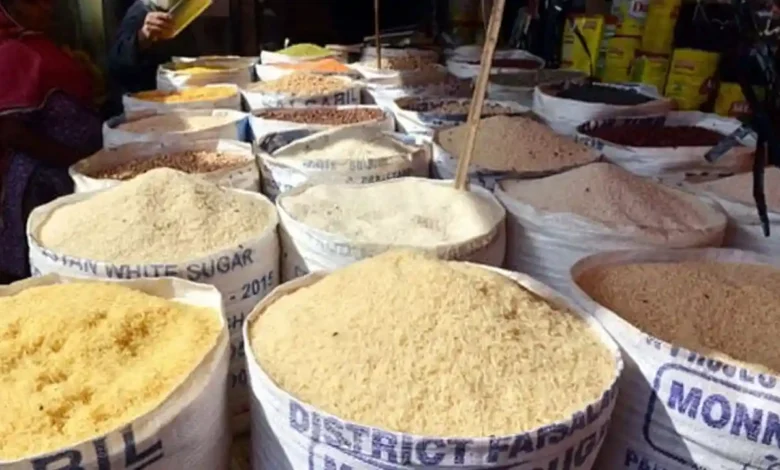Food Price Surge

Climate inflation, a term that has only recently entered the lexicon of environmental discourse, poses an existential threat to global food security, leading to a significant food price surge. This phenomenon, characterized by the skyrocketing prices of essential commodities due to climate-related disruptions, has far-reaching consequences that imperil the very fabric of our societies.
Climate change is no longer a distant threat; it’s a harsh reality that’s already affecting our daily lives. One of the most significant consequences of global warming is the food price surge that affects essential commodities, particularly food. This phenomenon, known as climate inflation, is driven by the increasing frequency and severity of extreme weather events, temperature fluctuations, and changing precipitation patterns.
The statistics are alarming: a mere 1°C increase in global temperatures has led to a 10% decline in crop yields, precipitating a cascade of price hikes that have left millions vulnerable to food insecurity. The situation is exacerbated by the increasing frequency and severity of extreme weather events, which ravage agricultural landscapes, destroy infrastructure, and displace communities, further driving the food price surge.
A recent study conducted by the Potsdam Institute for Climate Impact Research and the European Central Bank analyzed monthly food price indexes between 1996 and 2021 across 121 countries. The findings were alarming: increases in food prices are strongly associated with climate-related factors. In Europe, where heat records were shattered in 2022, the heatwave led to a 0.43-0.93 percentage point rise in food inflation. Moreover, the research predicts that climate-driven inflation will surge by 3 percentage points in the next decade, contributing to a global food price surge.
In Pakistan, the current narrative attributes price hikes to fluctuations in the dollar exchange rate. However, this oversimplifies the complex issue of climate inflation. Historically, higher petroleum prices were blamed for inflation, as they increased transportation and production costs. Today, the relationship between petroleum prices and inflation is more sinister. The excessive use of gasoline-powered vehicles and petroleum-based electricity generation accelerates global warming, leading to decreased agricultural yields, reduced arable land, and lower crop fertility, all of which contribute to the food price surge.
As the world warms, agriculture becomes increasingly challenging, leading to food scarcity and price increases. This, in turn, displaces communities, exacerbates poverty, and fuels social unrest. Pakistan, ranked among the most vulnerable countries to climate change, will face unprecedented challenges in ensuring food security for its citizens. The consequences of climate inflation are multifaceted and devastating. Small-scale farmers, the backbone of global food systems, are pushed to the brink of bankruptcy as their livelihoods are decimated by climate-related crop failures. Agro-insurance, a vital safety net, is often inaccessible to these farmers, leaving them exposed to the whims of a capricious climate. Moreover, climate inflation has a disproportionate impact on vulnerable populations, who spend a significant portion of their meager incomes on food. As prices soar, these individuals are forced to make impossible choices between nourishment and other essential necessities, leading to malnutrition, stunted development, and even starvation.
The double whammy of climate inflation and governmental incompetence will push citizens to the brink, forcing them to take extreme measures to access basic necessities like food. The responsibility for this catastrophe lies with the rich nations that have contributed disproportionately to greenhouse gas emissions, while the poor nations bear the brunt of the consequences.
The international community must act with urgency to mitigate the effects of climate inflation. Supporting small-scale farmers through training, resources, and access to markets is crucial. Promoting agro-insurance, fostering climate-resilient supply chains, and developing climate-resilient infrastructure for agriculture are equally vital.
Furthermore, international cooperation on climate change is essential. Sharing knowledge, developing joint solutions, and supporting climate change research and development can help us better understand and address the impacts of climate inflation.
Mitigating the impact of climate inflation requires a multi-faceted approach. This includes shifting from fossil fuels to renewable energy sources like solar and wind to reduce greenhouse gas emissions. Implementing practices such as regenerative agriculture, agroforestry, and permaculture can enhance soil health, biodiversity, and water efficiency. Additionally, developing crop varieties that are tolerant of changing weather conditions is crucial. Communities must invest in protective measures like sea walls, levees, and green infrastructure to guard against climate-related disasters. Efficient irrigation systems and water harvesting techniques are also vital to reducing water waste, while restoring natural ecosystems such as forests, wetlands, and mangroves is essential for maintaining biodiversity and ecosystem services.
Infrastructure must be designed and built to withstand extreme weather events. Continuous funding and research are necessary to improve our understanding of climate change and to develop effective solutions. Global collaboration is key to sharing knowledge, technologies, and best practices in addressing climate inflation. Educating communities, businesses, and governments about climate inflation and its impacts is essential to promoting collective action. Policies that support vulnerable populations, ensuring climate justice and equity, are needed. Finally, promoting sustainable lifestyles, reducing food waste, and supporting sustainable supply chains are important steps toward a more resilient future.
Read Also: A Bet of Diplomacy – The US and China
Pakistan is one of the countries most vulnerable to climate change, and climate inflation has significant implications for its economy and food security. Pakistan’s agricultural sector is heavily reliant on water and temperature-sensitive crops like wheat, cotton, and rice. Climate change alters precipitation patterns, leading to droughts and floods, which impact crop yields and food prices. Pakistan already faces food security challenges, and climate inflation exacerbates these issues. Rising food prices affect the most vulnerable populations, including the poor and marginalized communities.
Climate inflation leads to increased costs for agricultural inputs, transportation, and storage, affecting the overall economy. Pakistan’s GDP is heavily reliant on agriculture, so climate-related disruptions have far-reaching economic implications. Changes in precipitation patterns and increased evaporation due to warmer temperatures lead to water scarcity, impacting agricultural productivity and food prices. Pakistan experiences frequent heatwaves and extreme weather events, which damage crops, infrastructure, and human health, contributing to climate inflation. Climate inflation can lead to migration from rural to urban areas, putting pressure on resources and potentially causing social unrest.
The Pakistani government has initiated some climate change mitigation and adaptation efforts, but more needs to be done to address the scale and urgency of climate inflation. Climate inflation has severe implications for Pakistan’s economy, food security, and vulnerable populations. Addressing these challenges requires a multi-faceted approach, including climate-resilient agriculture, water management, and social protection programs.
By implementing these strategies, we can reduce the impact of climate inflation and create a more resilient and sustainable future.
The window for action is rapidly closing. We must acknowledge the severity of climate inflation and work collectively to address its far-reaching consequences. The future of our civilization depends on it. Climate inflation poses an unprecedented threat to global food security, with far-reaching consequences for human well-being, economic stability, and social cohesion. It is imperative that we take immediate action to mitigate its effects, support vulnerable populations, and ensure a food-secure future for generations to come.
 Quraitulain Qureshi
Quraitulain Qureshi
Quraitulain Qureshi is a seasoned journalist and a dedicated CSS mentor. She combines her deep understanding of current affairs with a passion for guiding aspiring civil servants. You can reach her at 1995faded@gmail.com